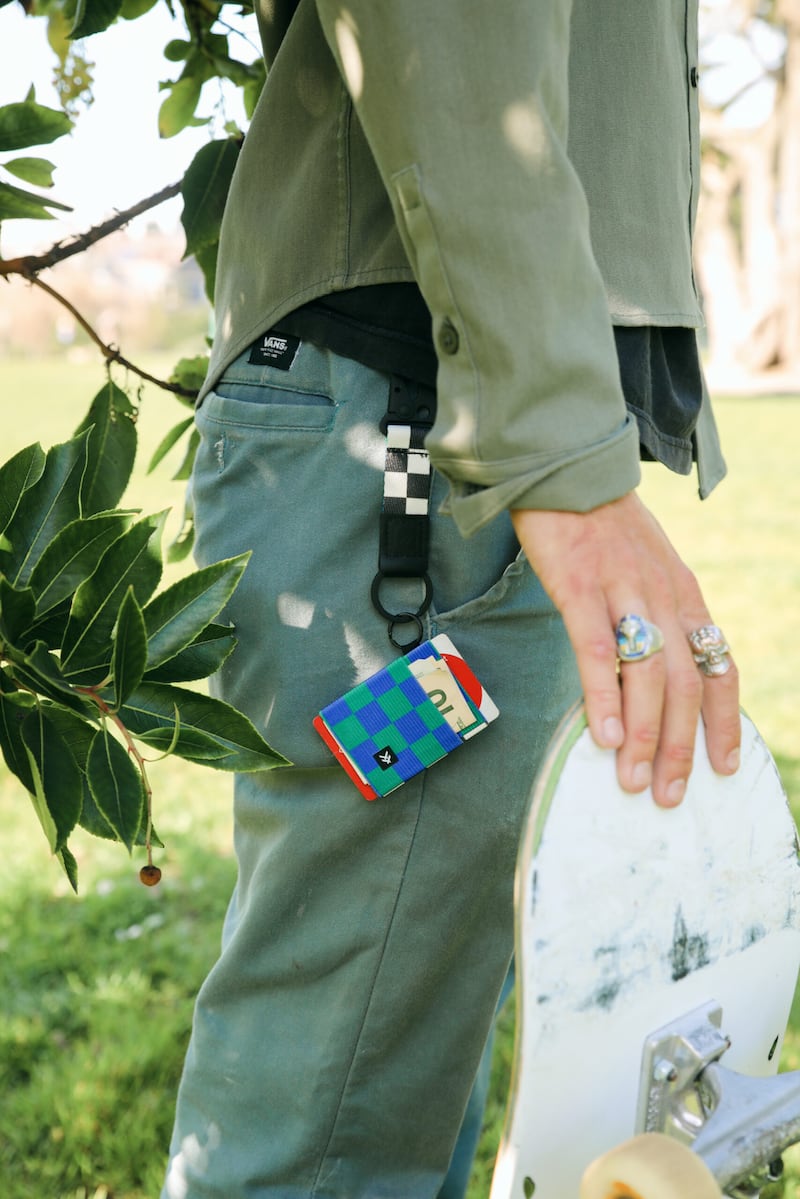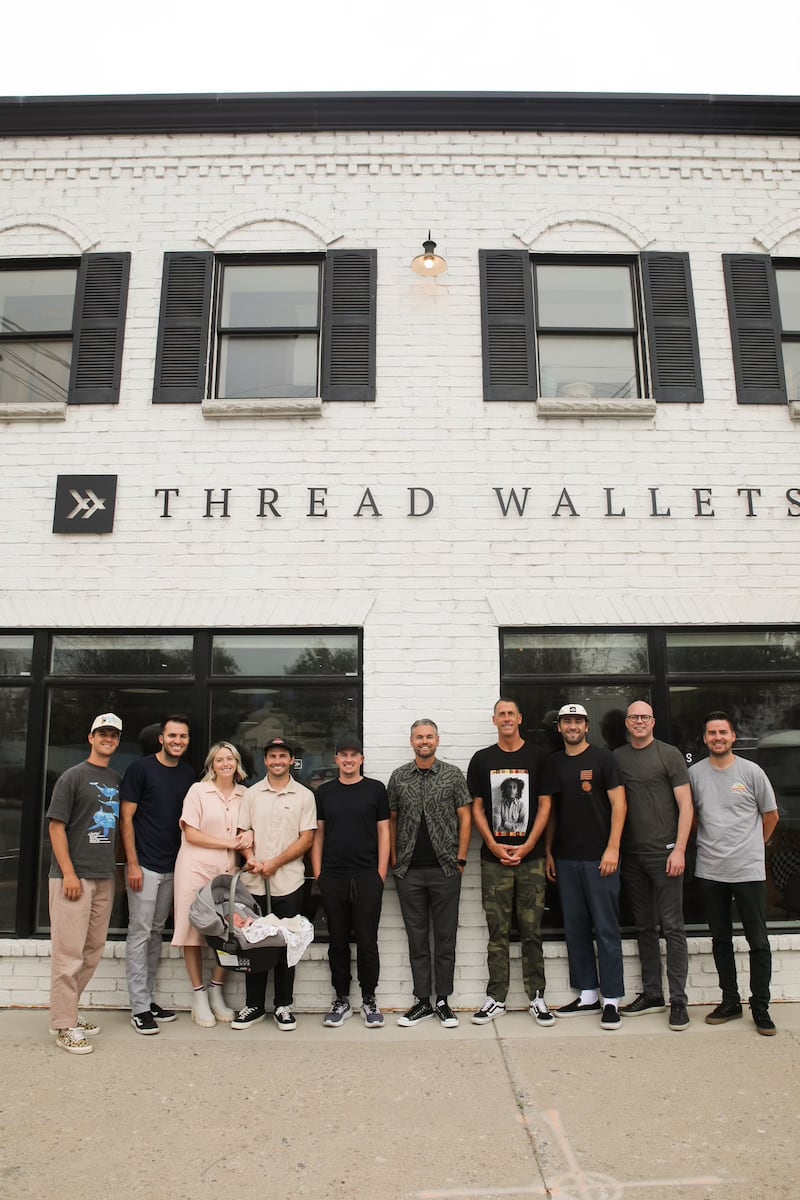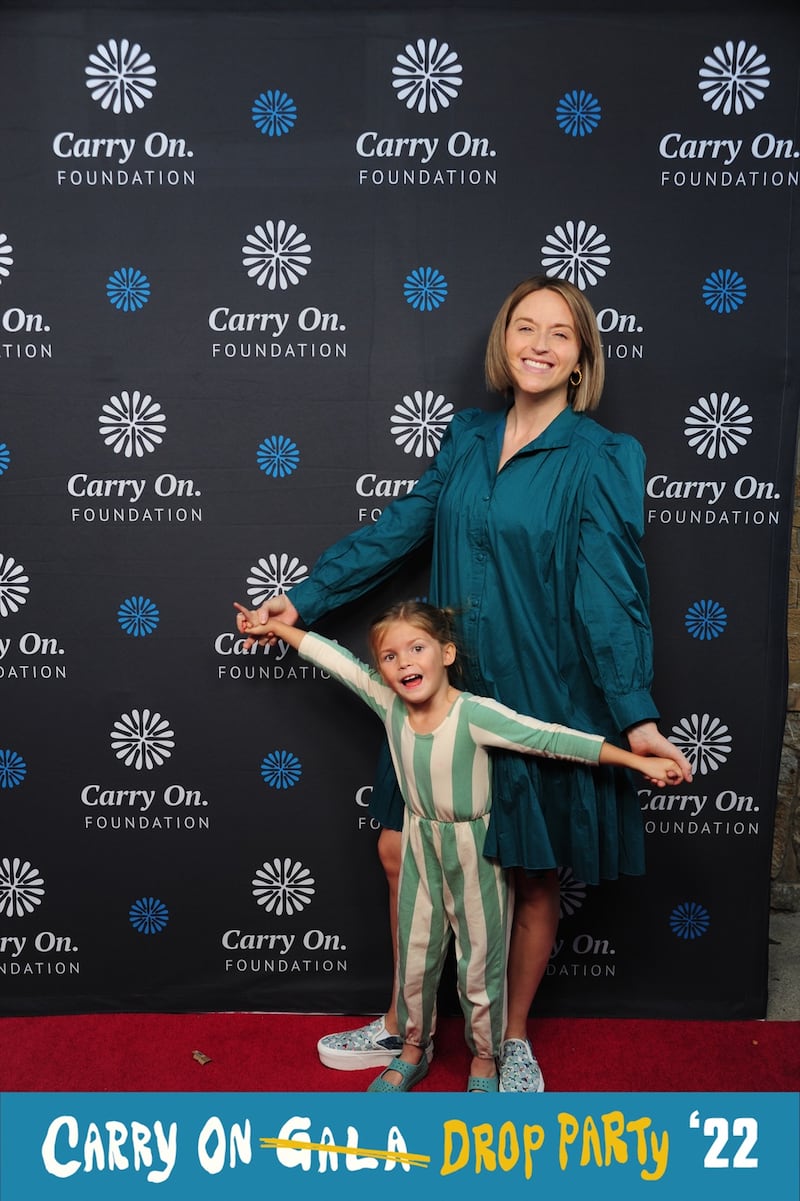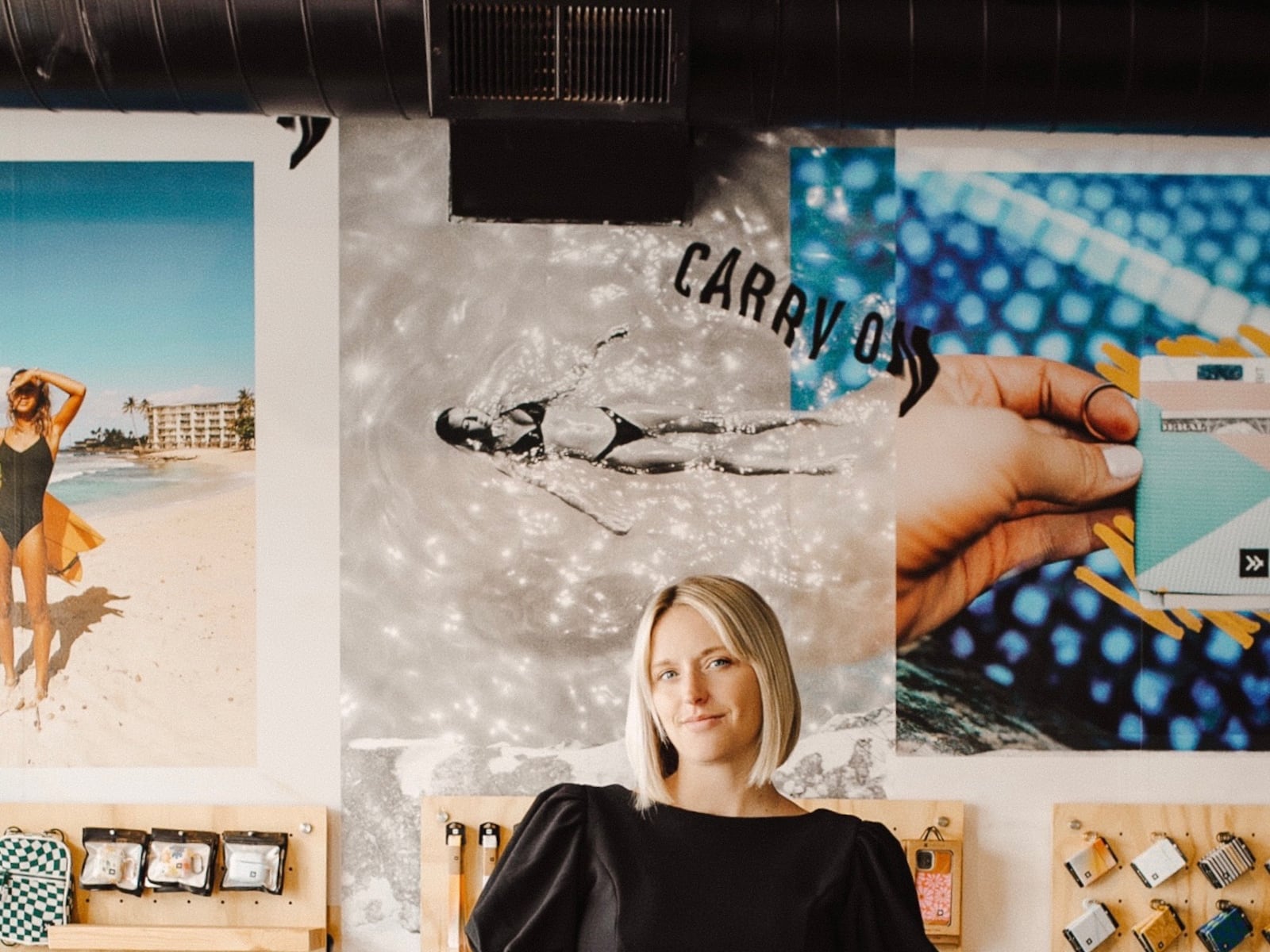I was born in American Fork, Utah, but was mostly raised in Provo. Upon graduating high school in 2010, I headed straight to Brigham Young University–Hawaii (BYU–Hawaii) and graduated three years later with a degree in international cultural studies with an emphasis on peacebuilding. The focus of my college education was on mediation and conflict resolution. I minored in political science.
I loved my experience on that small island and feel like I was one of the rare few from Utah to complete their entire undergrad at BYU–Hawaii instead of hopping over for a semester or two, as many do. Because of the diverse student body at the university, I became very passionate about peace studies. In my senior year, I flew across the world and completed a summer internship with an international peace organization called Initiatives of Change Switzerland.
Ultimately, my desire was to dive deeper into conflict resolution and pursue a law degree with a joint master’s degree in conflict resolution. But as you can guess, my life took a different turn. I graduated college in December 2013 and met my husband, Colby, in early February 2014.
After we got married back home in Utah in August of 2014 (typical Utah timeline, I know), Colby and I returned to Hawaii so he could finish school. As such, Hawaii will always hold a special place in my heart.
Around the same time that I met Colby, we started ideating our business together. Because of that, I never had much of a career outside of Thread Wallets. I did, however, teach as an adjunct professor at BYU–Hawaii for about a year and a half. I nannied on the side to help earn money while we started Thread. But for the most part, Colby and I jumped right into our business and entrepreneurship.

A lost wallet in the ocean and the inspiration for Thread
While playing soccer at BYU in Provo, my husband was recruited to play soccer at BYU–Hawaii. Because the team at BYU in Provo was a club team and BYU–Hawaii was part of the National Collegiate Athletic Association (NCAA), Colby was able to bounce back and forth between the two schools.
Colby moved to Hawaii in the fall of 2013, and as could be expected, he was stoked to get in the water. On one trip to the beach, he jumped into the ocean without taking his wallet out of his boardshorts pocket, and you can guess what happened from there. His wallet was forever lost to the ocean. When he went to buy a new wallet online, all he could find were outdated designs and a big billfold (imagine George Costanza’s wallet from Seinfeld). In the end, he decided just to use a rubber band because he didn’t want something weighing him down.
At the same time, Colby was taking an entrepreneurship class that focused a lot on Kickstarter. It was early 2014, and he noticed a lot of campaigns being funded off of minimalist wallets. If you go back and look at those, and it’s actually kind of crazy to see—some of the campaigns raised over $300,000. Because these products were making vast amounts of money, Colby realized that, like him, people wanted minimalist wallets. The thing they were all missing was self-expression and personality.
Colby had always admired companies like Stance® socks, Skullcandy headphones, and Neff Headwear—brands that took a single product and built a lifestyle brand around it. He eventually wanted to emulate this pattern.
Colby had the idea to combine both the functionality of a minimalist wallet with self-expression when we first met. Literally, one of the first questions he asked me was, “Do you own a sewing machine?” I did own one, and since I thought he was really cute, I recognized it as the perfect way to get him to spend time with me.
Colby came over to my place and brought materials with him. He’d get elastic from JOANN Fabrics and Crafts store, and we started sewing our first wallets. As I was falling in love with him, I also really fell in love with the functionality of the wallets we were sewing. I hated (and still do hate) carrying around bags, so the functionality really spoke to me—but I knew something was missing.
I said to him, “This has to have a key ring on it!” With a key ring, I could carry my keys and gym pass on the wallet and would never have to carry a purse again in my life. I chopped up some of my headbands and immediately sewed those on so we could attach the key ring. As simple as the product was, we were putting our two minds together, and it snowballed from there.
Both things progressed equally: our relationship and the ideas we had for our business. We got engaged three months after we met, and three months after that, we got married in Utah. It all happened very fast. In August 2014, we moved back to Hawaii for Colby’s final semester. We packed up 1,000 wallets and brought them with us and thought, “Why not?”
In Hawaii, we were able to validate our business idea through farmers markets and getting the wallets into a few local retail stores. Because of the small wins we were seeing, we thought, “Let’s see if we can do something with this, and if it works, it works. If it doesn’t, we’ll pivot.” After all, we were young. We didn’t have a mortgage, and our car was paid off.
How we funded Thread
When we first had the idea for Thread in 2014, we were sewing wallets in my childhood bedroom on the sewing machine I received for Christmas when I was twelve. At the same time as we were sewing these wallets together, Colby and a good friend named Romy, his teammate from the BYU soccer team, came up with a plan to create customized soccer socks for soccer teams. I sewed the wallets while Romy and Colby started creating a Kickstarter campaign for an entrepreneurship class they were taking.
The ultimate goal was to fund the sock idea through the wallets we were selling. At the time, we didn’t have enough money for all the soccer socks we wanted. Through the Kickstarter campaign and some money Romy invested, we got enough money to buy the equipment we needed to create the socks.
The wallets launched on Kickstarter, and to our surprise, they took off. We got them into local retail shops, and people were using them and falling in love with their functionality. It wasn’t too long before we all knew that soccer socks weren’t the product we wanted to focus on. Colby and Romy decided to pivot, and we canceled the sock order. We continued to sell the products at pop-up shops, local boutiques and to our friends and family.
Afterward, both Colby and Romy graduated from college. Romy decided to go back home to Georgia and work for his dad. We bought him out, and that’s when we decided to go forward with Thread and see what would happen. Since the beginning, Thread has been a bootstrapped company, and we are forever grateful for Romy and other friends and family who helped support the idea in its infancy.
The first year in business
As we’ve built our business, I’ve learned how rare profitability in the first year can be. Because our product was really inexpensive to manufacture, we have been profitable from day one.
During our first year as an official business (we incorporated in January 2015), Colby coached soccer and I was teaching classes online for BYU–Hawaii while nannying on the side. At the start, we lived with my parents to help save money. We didn’t need much, so we were living off those side hustles and money we had saved from our wedding. After being in business for about six or eight months, we started to pay ourselves the bare minimum—around $1,000 to help cover living costs and to save up for the house we were planning to rent.
We finished our first year of business with around $130,000 in sales. Once we saw traction, we started paying hourly employees to help with the odds and ends that come with starting a business.
Being profitable from day one has had its perks, but it hasn’t always been easy! Once we started to get a tiny bit of traction from selling at farmers markets, Colby had some offers, including the potential to play soccer professionally or go to work for his dad’s financial planning firm and take over when his father retired.
Sitting in our tiny little apartment, we realized if we could sell 10 wallets a day, we’d make $50,000-$60,000 a year, which was plenty for the two of us to live off of. Knowing that we did around $130,000 that first year, we were selling more like 15-20 wallets a day through farmers markets, pop-up shops and a tiny bit online, which was fun. However, we knew we needed to give it even more gas. We put together another Kickstarter campaign where we raised about $35,000. This helped us buy more equipment as well as get our wallets into people’s hands.
Today, Thread Wallets is in about 2,000 stores nationwide, including Al’s Sporting Goods, SCHEELS, Zumiez, Jack’s Surfboards, Ron Jon Surf Shop, and Palmetto Moon (on the East Coast), among others.
We also have eight kiosk locations—one at University Place Mall in Orem, Utah; one at Fashion Place Mall in Murray, Utah; one in a mall in San Diego; a couple in Idaho; one in Arizona; and one in St. George, Utah. We are opening up our first brick-and-mortar location this spring at City Creek in Salt Lake City.
Our ‘lucky’ timing with Instagram
We truly were so lucky with the timing of Thread. When we officially launched our brand in 2015, Instagram was only five years old. People who are now big Instagram influencers had amassed a following, but it wasn’t as competitive as it is now. It was really easy to get our products into influencers’ hands, so we sent free products to any and every influencer.
If we’d see an influencer hosting an event, we’d immediately reach out to them and design products for their event—and we’d do it for free. We had that luxury because our products cost very little to manufacture. We’d send 100, 500, or even 1,000 wallets for free and write it off as a marketing expense, and it barely affected our bottom line that much.
In the beginning, we tried to give away as much free product as possible. Part of that was in looking for the big influencers but also treating our friends and family like they were influencers as well—essentially getting our product into as many people’s hands as possible.
I remember evenings when we would stand on BYU’s campus with a box full of wallets and just hand them out to people. Another night, we went to a local juice bar and handed out products. Any time we could get our product into people’s hands, we seized it, and I really think that moved the needle for us in the early days and as a part of our strategy. Making sure we are connecting with people who have influence, whether they have 500 or 5 million followers, is still part of our strategy today.

Inspiring people to chase progression
At Thread, our mantra is to “carry on.” We literally create accessories that you “carry,” but a larger purpose at Thread is to inspire people to always be chasing progression … At the current moment, our main focus is on action sports like surfing, skating, snowboarding and skiing, or anything that has to do with the outdoors and moving.
Our goal is to become the go-to brand for all things “carry.” With that in mind, we just launched The Carry On Foundation, a 501(c)(3) that helps teach mental health skills and resiliency to youth through action sports. It’s my husband’s passion project, and the beauty of it is that it ties in so well with Thread’s mission and purpose.
We recently bought a building in Provo. If you’re familiar with the area, it’s the Old Rock Church just off Center Street. It’s been sitting vacant for about 11 years and needs a lot of work, but 20,000 square feet gives us a beautiful canvas to create both Thread and The Carry On Foundation’s headquarters. We’re really excited to be putting our roots down permanently here in Provo and giving back to the community that has given us so much.
The building is a work in progress, but we’ve already begun the remodeling process and have installed our first skate ramp. Within the coming months, we will be offering classes for youth so they can come in and learn how to skate. More importantly than that skill alone, we’ve developed a curriculum with a sports psychologist to help teach these kids the importance of The Carry On Foundation’s “three Cs:” competence, community and connection.
Ultimately, our goal is to help teach these kids how to cope with the stresses of life. It will be really fun to see that unfold.
The Carry On Foundation isn’t the only big initiative we are working on. As I mentioned earlier, our goal is to become the go-to brand for all things “carry.” That means we’ll be launching more products that fit that mindset, such as backpacks, duffel bags, laptop cases and so much more. No matter what we launch, you can always count on Thread to pair functionality with expression and style.
My journey to entrepreneurship has been interesting. In college, I would have never anticipated the path life would take me on. I am so grateful for my experience! I have learned so much along the way. Over the years, I have become a huge advocate for women in business, particularly because I have three daughters—a five-year-old (she’s almost six), a three-year-old, and our third baby we just had in July. I am so sick of Utah coming in dead last for women’s equality, and I know that it will take leaders and business professionals proactively trying to change the current landscape.
I want my daughters to grow up in a state that champions and celebrates women more, and I know that together, we can create that environment. On top of my responsibilities at Thread, I’ve been working on initiatives that help break down the barriers women in business might experience. I currently host quarterly meetups for women in business here in Utah. I also love mentoring other women who are starting their businesses or are in the first few years. Between Thread, The Carry On Foundation and these personal projects, big things are happening in my life, and I couldn’t be more grateful to be doing them in Utah.


